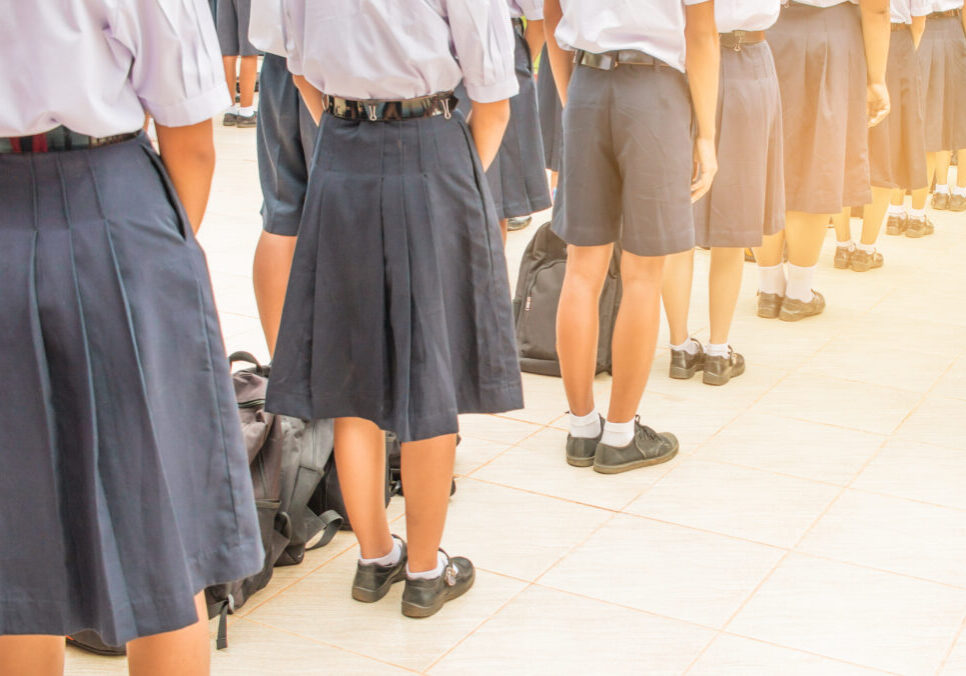Gov. Jeff Landry’s plan to have Louisiana spend more than $500 million per year on private school tuition – most of which would go to middle-class and wealthy families that already are paying for private school – is on a fast track through the Legislature. On Tuesday the House Education Committee sent House Bill 745 by Rep. Julie Emerson to the floor without objection, despite concerns that it would drain resources from public schools and other state services that could be starved for cash. The Louisiana Illuminator’s Greg LaRose was there:
Jan Moller with Invest in Louisiana, an economic prosperity advocacy group, agreed that the legislative estimates don’t account for private school family interest in education savings accounts. “What this bill does is create a brand new entitlement program where we’re going to pay at $5,190 of government money per year to more than a 107,000 families in Louisiana who’ve already made the decision to choose a private school for their child,” Moller said. The projections for annual state spending from the Legislative Fiscal Office and PAR are likely both low, Moller said, based on the experience of other states.
Emerson’s bill and a companion measure, Senate Bill 313 by Sen. Rick Edmonds, both have to go to the budget committees in their respective chambers for a review of their potential costs.
Corporations should pay more taxes
Major portions of Donald Trump’s massive 2017 tax cut law are set to expire next year, setting up a high-stakes public debate over the fate of the estate tax and individual income tax rates. The Center on Budget and Policy Priorities argues in a new paper that Congress should also revisit a permanent feature of that law – the cut in the top corporate income tax rate from 35% to 21%. While supporters argued that cutting corporate taxes would lift all incomes, the evidence so far is that it’s mostly helped those at the top.
During the 2017 debate, Trump Administration officials claimed the rate cut would “very conservatively” lead to a $4,000 boost in household income. A rigorous new study by economists from the Joint Committee on Taxation (JCT) and the Federal Reserve Board found that workers below the 90th percentile of their firm’s income scale — a group whose incomes were below roughly $114,000 in 2016 — saw “no change in earnings” from the rate cut.[2] Earnings did, however, increase for workers in the top 10 percent, and “increase[d] particularly sharply for firm managers and executives.”[3] Gains to shareholders are also highly concentrated at the top; the bottom 50 percent of households by net worth held just 1 percent of overall equities as of 2019.
President Joe Biden’s budget proposal calls for raising the top corporate rate to 28%, which would raise about $1.3 trillion over a decade.
Following Texas on immigration
Louisiana doesn’t share a border with Mexico, but you wouldn’t know it from the actions of Gov. Jeff Landry and his lickspittle followers in the Legislature. On Tuesday a Senate committee advanced legislation that would have Louisiana follow the lead of Texas in picking a fight with the federal government over immigration enforcement. As The Times-Picayune | Baton Rouge Advocate’s Meghan Friedmann reports, Senate Bill 388 by Sen. Valarie Hodges would subject undocumented immigrants living in Louisiana to prison terms of up to one year and a fine of $4,000 on a first offense and two years in prison and a $10,000 fine on a second offense. It’s the federal government’s role to police immigration, but Texas and other conservative states are seeking to enter the fray.
During the Senate committee hearing Tuesday, immigration lawyers and advocates said SB 388 would deplete the workforce of migrant laborers that rebuilds Louisiana after hurricanes and increase deportations that separate parents and children. “I’ve have seen the impact of deportation on kids. It is horrendous. They will never get over it,” said Susan Weishar, a research fellow at the Jesuit Social Research Institute. Huey Fischer Garcia, of the Southern Poverty Law Center, cautioned the committee that the law would strain Louisiana’s state budget. “It would crowd up our jails,” he said. “It would create the need for more judges, more prosecutors, more public defenders.”
Lessons from a bridge collapse
The tragic collapse of Baltimore’s Key Bridge early Tuesday morning appears to have been a freak accident, and President Joe Biden’s administration has said it will move quickly to rebuild. Still, the disaster provided yet another reminder that, despite trillions of dollars in new investments at the federal and state level, America’s infrastructure remains fragile and in dire need of an upgrade. The Washington Post’s Philip Bump reports:
Entropy, the natural tendency toward disrepair, is an enormous political headache in a country the size of ours. Case in point: The ratings of more than 110,000 bridges changed between the 2020 and 2023 data sets. About 43,000 were improved. Nearly 70,000 had deterioration. About 56,000 bridges went from “good” to “fair” or “poor” condition. Another 13,00 went from “fair” to “poor.”
Number of the Day
2 – Number of Black-majority districts on the 7-member State Supreme Court under a redrawn map approved Tuesday by the state Senate. (Source: Louisiana Illuminator)
